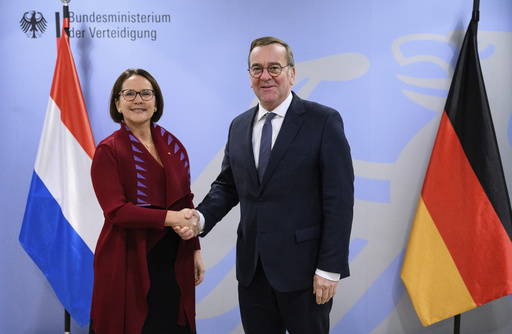
BERLIN — As Chancellor Olaf Scholz engages with global leaders in Brazil, a significant conversation is unfolding within his party regarding his potential bid for a second term ahead of the anticipated early election slated for February.
In contrast to their competitors, Scholz’s center-left Social Democrats have yet to officially announce their candidate for chancellor for the upcoming vote on February 23. This indecision is fueling ongoing speculation that the party may nominate Defense Minister Boris Pistorius, who enjoys a favorable public image. Despite the reassurances from party leaders and government officials that Scholz will be the nominee, they have found it challenging to quell discussions about a possible candidate change.
Two prominent legislators remarked late Monday that Scholz’s current position is closely tied to the coalition he led, which disintegrated two weeks ago over disagreements on revitalizing Germany’s faltering economy. Wiebke Esdar and Dirk Wiese, who represent a faction of Social Democratic lawmakers from North Rhine-Westphalia, the country’s largest state, released a statement noting that while Scholz’s actions and choices may be viewed more favorably in hindsight, there is an ongoing debate among party members regarding the best political strategy heading into the election.
They indicated, “Pistorius is receiving a lot of positive feedback. Ultimately, it will be the party committees that determine who will run for chancellor, and that process is appropriate.”
Although Scholz does not hold an official title within the party’s leadership hierarchy, Social Democrat leaders have consistently rallied around him, even as recent polls show the party’s support lingering around 16%, about half of what the center-right opposition bloc, the Union, has achieved.
This marks a significant decline from the 25.7% the Social Democrats secured to emerge victorious in the 2021 election when Scholz, previously respected as vice chancellor and finance minister, was able to position himself as a reliable choice against opponents plagued by missteps and infighting.
Scholz’s popularity has waned in tandem with the diminishing fortunes of his coalition, which comprises the Greens and the pro-business Free Democrats. This coalition has grappled with continual disputes and ineffective communication while managing an underperforming economy. Tensions peaked on November 6 when Scholz dismissed Finance Minister Christian Lindner, leading to the Free Democrats’ exit from the government.
Scholz is set to initiate a confidence vote in parliament on December 16, from which he is likely to emerge unsuccessful, thereby creating the opportunity for Germany’s president to dissolve parliament and arrange a new election much earlier than previously scheduled.
For months, Scholz has expressed his desire to pursue a second term. Just hours before the comments from Esdar and Wiese, the co-leader of the Social Democrats, Saskia Esken, reiterated her backing for Scholz’s candidacy.
“We are resolved to enter the election campaign with Olaf Scholz as our candidate,” Esken stated during an interview with ARD television. “He is our Chancellor and our choice for chancellor.”
When questioned about the delay in making a formal announcement, she explained, “It seems evident.”
Upon returning from the Group of 20 summit in Rio de Janeiro on Wednesday, Scholz will likely be faced with the continuing discussions. Meanwhile, his adversaries have already formalized their candidacies; the Union bloc selected Friedrich Merz in September, and the Green party recently appointed Vice Chancellor Robert Habeck to lead their campaign efforts.
Although Pistorius has expressed unwavering support for Scholz and hasn’t shown any immediate intentions to pursue the chancellorship, he has left the door open for future possibilities. “In politics, it’s wise never to dismiss any scenario,” he stated during a recent event in Passau, according to reports from German media.
